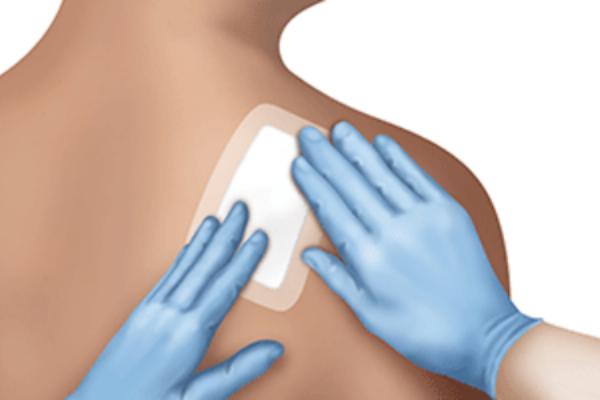Biopsy for Diagnosis The Foundation of Effective Treatment

Strong 8k brings an ultra-HD IPTV experience to your living room and your pocket.
When it comes to diagnosing medical conditions, especially serious ones like cancer, a biopsy plays a crucial role. It is a procedure that involves taking a small sample of tissue from the body for closer examination, typically under a microscope. This detailed analysis helps doctors determine the presence or absence of disease, making a biopsy a cornerstone in medical diagnostics. By providing a clear and accurate diagnosis, a biopsy sets the stage for effective treatment, ensuring that patients receive the most appropriate care for their specific condition.
What is a Biopsy?
Biopsy for Diagnosis Purposes in Dubai is a medical procedure where a sample of tissue or cells is removed from the body to be examined in a laboratory. The process is generally safe and is performed using various techniques depending on the location of the tissue in question. The sample taken during a biopsy provides valuable information about the nature of any abnormalities, such as whether a tumor is benign or malignant. This information is essential for developing a treatment plan that is tailored to the patient’s needs.
Types of Biopsies
There are several types of biopsies, each suited to different situations and locations in the body. The choice of biopsy method depends on factors such as the suspected disease, the area of concern, and the patient’s overall health.
1. Needle Biopsy
A needle biopsy involves using a thin, hollow needle to extract tissue or fluid. This type is commonly used for masses or lumps that are easily accessible, such as in the breast, thyroid, or lungs. The procedure can often be done on an outpatient basis, making it convenient for patients.
2. Surgical Biopsy
A surgical biopsy is more invasive and involves making an incision to remove a larger piece of tissue or even an entire lump. This type of biopsy is often used when a needle biopsy cannot provide enough tissue or when the area of concern is in a location that is difficult to reach with a needle.
3. Endoscopic Biopsy
An endoscopic biopsy uses a flexible tube with a light and camera (endoscope) to examine internal organs, such as the stomach or intestines, and remove tissue samples. This method is particularly useful for diagnosing gastrointestinal conditions.
4. Skin Biopsy
A skin biopsy involves removing a small section of skin to diagnose skin conditions or diseases, including skin cancer. There are several techniques for skin biopsies, including shave biopsy, punch biopsy, and excisional biopsy, depending on the depth and area of the skin affected.
Why Biopsies are Essential for Diagnosis
Biopsies are vital because they provide the most definitive way to diagnose many conditions, particularly cancer. Imaging tests, such as X-rays or MRIs, can show abnormalities, but they cannot always distinguish between benign and malignant growths. A biopsy, however, can confirm the presence of cancer cells, their type, and their grade, which refers to how aggressive the cancer is. This information is critical for determining the best course of treatment.
The Role of Biopsies in Treatment Planning
Once a biopsy has confirmed a diagnosis, it plays a significant role in planning the appropriate treatment. For example, in the case of cancer, the biopsy results help oncologists decide on the type of surgery, chemotherapy, or radiation therapy that would be most effective. The precise nature of the tumor, as revealed by the biopsy, guides the entire treatment process, ensuring that patients receive the most targeted and effective therapies available.
Risks and Considerations
While biopsies are generally safe, like any medical procedure, they carry some risks. These can include infection, bleeding, or bruising at the biopsy site. However, these risks are typically low, and the benefits of obtaining an accurate diagnosis far outweigh the potential downsides. It is important for patients to discuss any concerns with their healthcare provider before the procedure.
Preparing for a Biopsy
Preparation for a biopsy depends on the type of biopsy being performed. For most types, minimal preparation is required. Patients may need to avoid eating or drinking for a few hours before the procedure, especially if sedation or anesthesia will be used. It is also essential to inform the healthcare provider of any medications or supplements being taken, as some may need to be paused before the biopsy to reduce the risk of bleeding.
What to Expect After a Biopsy
After the biopsy, patients might experience mild discomfort or pain at the site, which can usually be managed with over-the-counter pain relievers. The sample taken during the biopsy is sent to a laboratory where a pathologist examines it under a microscope. The results typically take a few days to a week, depending on the complexity of the analysis.
The Impact of Biopsy Results
The results of a biopsy can have a profound impact on a patient's treatment journey. A positive result may lead to immediate treatment interventions, while a negative result can provide peace of mind and potentially rule out serious conditions. Regardless of the outcome, the information gained from a biopsy is invaluable in ensuring that the right steps are taken for the patient’s health.
Conclusion: The Foundation of Effective Treatment
In summary, a biopsy is a critical procedure that provides the foundation for effective medical treatment. By offering a definitive diagnosis, it allows healthcare providers to tailor treatments to the specific needs of the patient, leading to better outcomes. Whether diagnosing cancer or other conditions, the biopsy is an indispensable tool in modern medicine, ensuring that patients receive the care they need to manage their health effectively.
Note: IndiBlogHub features both user-submitted and editorial content. We do not verify third-party contributions. Read our Disclaimer and Privacy Policyfor details.



